Today’s question: can dogs eat beans? Are beans good or bad for dogs? Scroll down for detailed answers.
Dogs eat a variety of food, whether we ask the dogs too or not. Dogs eat kibble, dry food, treats, homemade dog ice cream, etc. On top of this food, dogs may eat scraps of meat and veggies at dinner, or beg for and receive an occasional cookie. While your dog may eat any and everything, straying from the traditional foods may add a bit of excitement to your dog’s day while adding a bit more nutrition and health bonuses as well.
While meat is all well and good, like humans, dogs too are omnivores and require nutrition from other sources as part of their diet. Meat is wonderful source of vitamins and protein for your dog. Meat is one of the core sources of food your dog’s diet should derive from in order to live his/her best life. The realization of the fact that dogs may prefer a little excitement outside of meat is leading to an increasing number of dog owners, such as you, asking the question “Can dogs eat beans? ” The truth is, beans are in fact extremely healthy and fulfill all your dog’s nutritional requirements. Beans are a good source of nutrition as well as taste, can be mixed into most any food or added as a topper to any food. Mixed in with some kibble, and dogs may really enjoy the next texture of the day’s meal.
Can Dogs Eat Beans – The Benefits
Nutrients
Beans contain large amounts of protein that are a necessary part of your dog’s diet. Beans also contain other nutrients like magnesium, potassium, fiber, folate, iron, phytonutrients and B vitamins. These nutrients increase your dog’s immunity and burn fat. Dogs that have a boost in immunity not only get sick less often but come down with serious illness less often. When the immune system is working well and when the metabolism is burning fat quickly, the dog is a step ahead of the pack in terms of long term health.
The natural fibers that beans provide assist in regulating the blood’s sugar concentrations, thereby preventing diabetes and insulin-resistance in dogs. Many dog owners are unaware that diabetes can be developed in dogs. Humans are often the target of diabetes awareness campaigns and prevention methods. Dogs with a high concentration of sugar and develop diabetes cannot use their words to tell you they are sick. Regulating the blood sugar of your dog is your job to do via healthy diet, exercise, and supplemental nutrition.
Green Beans
With many families having green beans on hand and eating this type of bean more regularly, most people prefer to feed their dogs this type of bean. There are numerous reasons for dog owners to have this preference for feeding green beans to their dogs. Green beans contain five main nutrients; the fiber, magnesium and the vitamins A, C and K. Here is a breakdown of the nutritional benefits the vitamins in green beans offer you dog after ingested:
Fiber
Dogs are becoming increasingly more obese as time goes on. Dogs were never as obese as they are now, either from the lack of exercise or the types of food offered, dogs are becoming larger and unhealthier. Green beans can help offset this obesity trend. The low calorie count of raw green beans makes them an excellent tactic to reduce your dog’s weight. A treat that tastes good and is of low calorie count means your dog can have a treat without the added weight possibly obtained by eating bones instead.
Moreover, fiber increases the bulk of the food contents, thereby allowing the dog to eat more, yet gain less weight. With the bulk of the food filling your dog faster, the feeling of fullness will last longer and prevent your dog from feeling hungry and sneaking snack from the kitchen. Fiber also helps prevent your dog from becoming constipated since the fiber helps the food breakdown and pass through the intestinal track.
Magnesium
This mineral allows the body to effectively take in and use other nutrients like sodium, calcium, phosphorus, potassium and the vitamins E and C. Minerals that help aid other nutrients and minerals reach their specific body destination are the building blocks of nutrition. The magic of magnesium will allow your dog to fully absorb the nutrients in his/her food and veggie treats.
Magnesium is also necessary for proper enzyme activity. Enzymes are important in that they are a natural way of breaking down bacteria and infection from the body.
Vitamin A
This vitamin is fat soluble, improves your dog’s eye sight and keeps its heart in good condition.
Vitamin C
Vitamin C is water soluble and improves your dog’s immune system. It is also beneficial for regulation blood pressure. Vitamin C is known to improve immune systems and prevent a cold as well. Just as in humans, a dog will benefit from the vitamin C.
Vitamin K
Also fat soluble, vitamin K encourages the clotting of blood, absorption of calcium and recovery from injury.
All the above mentioned vitamins contain antioxidant qualities that help prevent your dog from getting cancer.
If you want to feed your dog a ready made food that contains green beans, I would recommend [easyazon_link identifier=”B00CK96M6K” locale=”US” tag=”frtp-20″] nutritious green bean wet dog food from Natural Ultramix[/easyazon_link]. The full list of ingredients include duck and venison, green beans, and Minnesota wild rice. This entree is healthy and tasty for the dog. Check that out [easyazon_link identifier=”B00CK96M6K” locale=”US” tag=”frtp-20″]here[/easyazon_link].
However, there are many other kinds of nutritious and tasty beans that you can feed your dog besides simply green beans. Maybe you do not have green beans in the house, or your dog does not like green beans. There are also those beans that are mistaken for being healthy, when in reality, they are quite the opposite. These are beans that you should watch out for. The beans that masquerade as healthy diet supplements and dinner helpers can be anything but.
Fear not, other beans are available and just as nutritious and important in the daily diet of your pooch.
Legumes
Legumes are also a good alternative as they contain as many calories as grains and more than thrice the protein content. Not to mention, the fact that they are alkaline removes the risk of them causing gas unlike other types of beans. Gas is not only unpleasant for you, but also for your dog. Besides the pain that excess gas can cause in a dog, gas can also multiply and cause bloating. Excess bloat can have detrimental effects on your dog and if not caught early enough, the dog can die.
Sticking with legumes may be a good option for you and your family. The legumes are nutritional, taste good, add girth to your food, and cause less gas.
Red Kidney Beans
The antioxidant qualities of red kidney beans can help decrease your dog’s cholesterol.
Dried Beans
Dried beans are cheaper than canned beans which (from a cost perspective) can prove to be useful when you have more than one dog. Buying beans in bulk from the grocery store can save you much money in the long run. Everyone knows that buying in bulk saves trip to the store, saves time and gas, but beans are so inexpensive when buying in bulk, you can afford to enjoy the treat regularly and share with your pet.
Beans Your Dog Should Not Eat
While beans themselves are a great food to incorporate into the diet of your dog, some types of beans are more beneficial for your dog than others. There are other types of beans that you should altogether avoid. Listed below are the types of beans to avoid offering your dog when altering their diet plan:
Coffee Beans
Since caffeine is likely to upset your dog’s stomach and is poisonous in high doses, not feeding your dog coffee beans is safer and better for its health.
Baked Beans
Baked beans contain high quantities of sugar and are an especially bad idea if your dog is diabetic. Since canned baked beans come in a thick tomato sauce, you need to be aware that tomatoes are poisonous for dogs. As a result, we can reach the conclusion that feeding your dog cheap canned beans in tomato paste may not be the best idea. The alternative to baked beans from a can is simply boiled beans or green beans.
Chili Beans
These are extremely spicy and can upset your dog’s stomach, therefore a definite no! Think of the effects chili beans can have on a human, would you wish these effects upon a pup? A pup without the means to care for itself, to understand the effects will pass, and to complain about their pain? Do not torture your dog by giving him/her chili beans. Nothing good will come from this food.
Canned Beans
Canned products are put through many processes and have additives and preservatives which make them less healthy than fresh products. Canned beans have an excessive amount of sodium and while some of the sodium can be rinsed out, you still end up feeding your dog a lot of sodium.
Skip the sodium, preservatives, tin can waste, and time spent shopping and buy dry beans in bulk.
How to Prepare Beans for your Dog
In order to prepare dried beans, the first thing to do is to immerse the beans in cold water and leave them soaked overnight. This water is drained out later and then the beans are cooked. Fresh water may be added, though you must avoid adding salt. You can grind the beans to make them easier for your dog to consume. If you do decide to feed your dog canned beans, simply take them out of the can, warm them and feed them to your dog. This may be okay for rare occasions but not very often. Be sure the canned beans do not contain tomatoes or excess salt and sugar.
Drawback of Feeding your Dog Beans
While extremely nutritious and good for your dog’s health, beans have a tendency of develop gas. This may not hold any serious danger at first, but chronic gas can eventually lead to constipation. Gas can also lead to bloating, which leads to a condition called Bloat.
Precautions
- Wash beans thoroughly.
- Feed your dog moderate amounts of any food not part its natural diet.
- If you are growing the beans yourself, keep your dog away from the garden as pesticides and chemicals can be harmful for its health (if not grown organically).
Related Articles:
References:
http://www.onegreenplanet.org/animalsandnature/are-beans-a-good-plant-based-protein-option-for-dogs/
http://www.cesarsway.com/dog-care/dog-nutrition/Dog-Approved-People-Food
http://bunkblog.net/foods-safe-for-dogs/can-dogs-eat-beans#.VZAZFPmqqko
http://moderndogmagazine.com/articles/10-people-foods-dogs/1896
http://dogtime.com/people-food-for-pets-ernie-ward.html
http://www.azvets.com/can-dogs-eat-green-beans/
http://nutritiondata.self.com/facts/vegetables-and-vegetable-products/2341/2
http://www.petmd.com/blogs/thedailyvet/ktudor/2012/apr/green_bean_diet_for_dogs-14140#.UqbYpI3ldRI

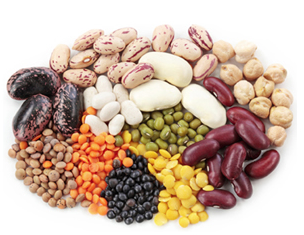
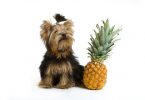
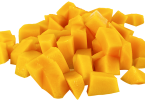
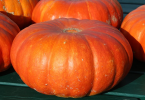
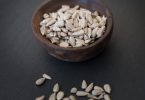
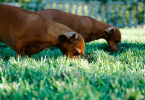

Leave a Comment